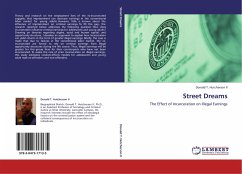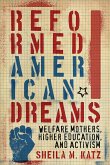Theory and research on the employment lives of the ex-incarcerated suggests that imprisonment can decrease earnings in the conventional labor market for young adults. However, little is known about the influence of imprisonment on criminal earnings. To fill this gap, the research reported below addresses the following question: How does incarceration influence criminal earnings for adolescents and young adults? Drawing on theories regarding stigma, social and human capital, and opportunity structure, I develop an argument to explain how incarceration can yield returns in the form of greater illegal earnings. Briefly, the case is made that due to failures in the conventional labor market, the ex-incarcerated are forced to rely on criminal earnings from illegal opportunity structures during the life course. Thus, illegal earnings will be greater for this group than for their counterparts who have not been incarcerated. To assess the role of prior incarceration on illegal earnings, this study estimates random-effects models for adolescents and young adult male ex-offenders and non-offenders.
Bitte wählen Sie Ihr Anliegen aus.
Rechnungen
Retourenschein anfordern
Bestellstatus
Storno








